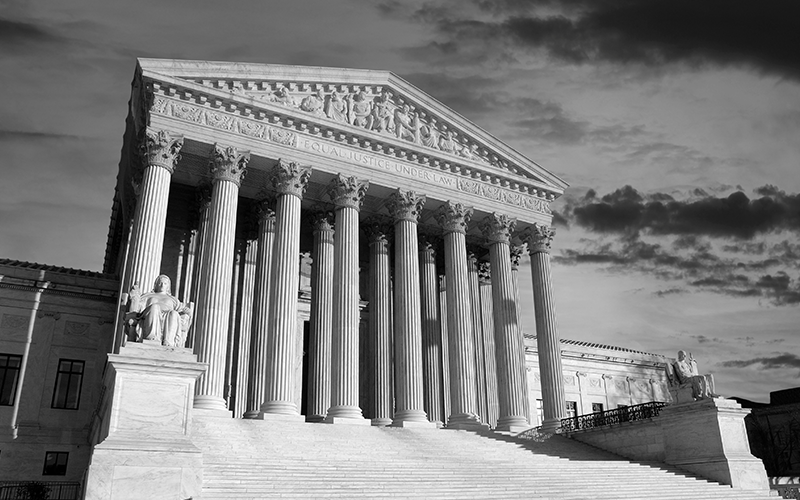As Glenn Laird waits to hear whether the U.S. Supreme Court will be the ultimate arbiter in his ongoing struggle with United Teachers of Los Angeles (UTLA), the Freedom Foundation’s case gained a powerful ally in June when the Ohio-based Buckeye Institute filed an amicus brief arguing that courts need to take a hard look at whether employees actually waive their First Amendment rights to end deductions.
In other words, courts cannot just dismiss a case without actually checking the facts.
Laird v. United Teachers of Los Angeles, one of several cases currently being appealed by the Freedom Foundation to the Supreme Court, is particularly important to put a spotlight on the schemes by public-sector unions and states across the country, countenanced by the 9th Circuit Court of Appeals, to suppress the constitutional rights of the union’s own members in order to continue collecting dues.
The complainant, Laird, is a longtime Los Angeles high school teacher who has witnessed his students assaulted, stabbed and even shot. Consequently, he believes a strong law enforcement presence on campus is critical to his and his students’ safety.
When his union, UTLA, pushed to defund campus police, Laird responded by demanding his membership and dues deductions be ended.
His request was justified not only by the Supreme Court’s 2018 ruling in Janus v. AFSCME, which affirmed the right of public employees to opt out of union participation and still keep their jobs, but also because Laird had deliberately crossed out the language limiting his ability to leave UTLA before signing his membership and dues-authorization form.
Nonetheless, UTLA refused to honor Laird’s wishes and continued taking his dues.
In 2021, Laird sought and received pro bono legal assistance from the Freedom Foundation.
Laird’s petition at the Supreme Court turns on whether, as the 9th Circuit asserts, a union can use the power it has demanded from the state to take an employee’s wages and compel him or her to financially support its political speech.
In clear contravention of Janus, the Court of Appeals panel framed the dispute as a matter of contract — even though Laird’s contract plainly allows an employee to end the deductions.
Like the Freedom Foundation, the Buckeye Institute is an independent educational institution advocating for the protection of public employees’ First Amendment rights. In its brief, the organization argues that judicial enforcement of a private membership agreement is state action.
The Supreme Court has held that a court enforcing a legal obligation, such as a contract, is enough to constitute state action. Additionally, as also asserted by the Freedom Foundation, state action is always present when state law and collective bargaining agreements authorize the union to require the government employer to take dues, even over an employee’s objections.
Lastly, Buckeye argues that before even addressing the question of whether an employee has waived his or her First Amendment rights in a contract, the court must determine if the contract is constitutionally valid.
A private contract, like the one Laird signed with UTLA, can contain waivers that are not “knowing, intelligent and voluntary,” as required when waiving First Amendment rights, or it might violate public policy altogether.
The Buckeye Institute’s brief illustrates the 9th Circuit’s divergence from the holding in Janus that should be addressed by the Supreme Court in Laird. As our allies at Buckeye note, the court should accept the case and make sure the 9th Circuit — and every other lower court — understands and respects the First Amendment rights of public employees.












